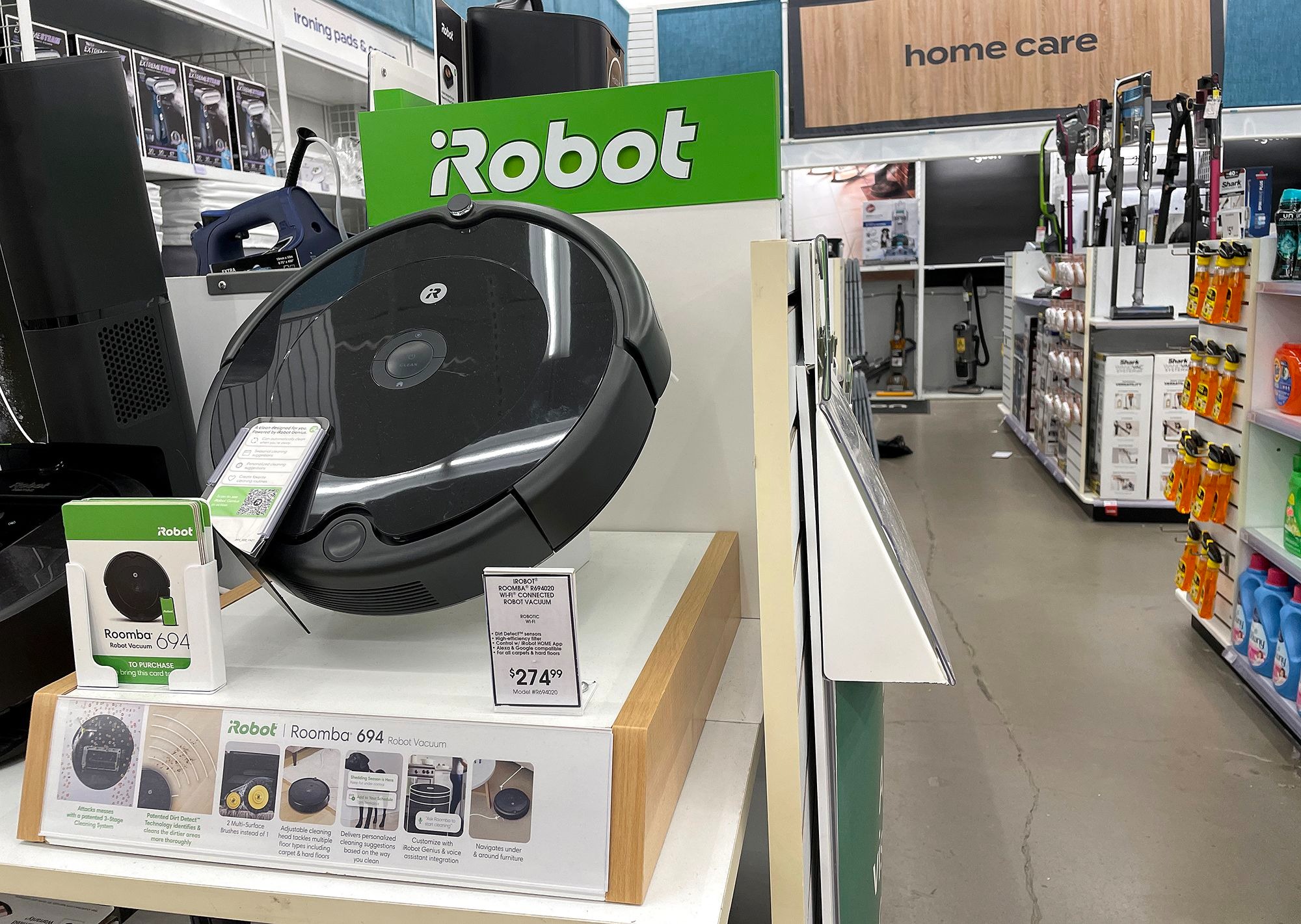In an unexpected turn of events, Amazon announced on Monday the abandonment of its proposed acquisition of iRobot, a leading robot vacuum manufacturer.
The e-commerce giant attributed this decision to escalating antitrust scrutiny on both sides of the Atlantic, citing the imposition of “undue and disproportionate regulatory hurdles.”
As a consequence of the failed acquisition, iRobot, headquartered in Bedford, Massachusetts, revealed a significant restructuring plan for its business. This includes a substantial reduction in its workforce by 31%, equating to approximately 350 employees.
Furthermore, the company disclosed the departure of its CEO, Colin Angle, who has stepped down. Andrew Miller, the Chief Legal Officer, will serve as interim CEO in his absence.

iRobot photo (Credits: CBS News)
In a joint statement, the companies agreed to terminate the acquisition agreement, expressing disappointment over the outcome. As outlined in their previous agreement, Amazon has committed to paying iRobot an undisclosed termination fee.
Amazon’s initial acquisition announcement was made in 2022, indicating its intention to purchase iRobot, renowned for its circular-shaped Roomba vacuum, for a substantial $1.7 billion in cash. However, the deal’s value experienced a 15% decline following iRobot’s accumulation of new debt.
The European Commission, the executive arm and chief antitrust enforcer of the European Union raised concerns last year, deeming the potential merger as “anti-competitive.” While British antitrust regulators approved in June, the deal faced ongoing scrutiny from the U.S. Federal Trade Commission.
The European Commission, when approached for comment, did not immediately respond. Its apprehensions centered around the possibility of Amazon diminishing the visibility of competing products or restricting access to specific labels, such as “Amazon’s choice,” which could attract more shoppers.
The commission previously asserted that Amazon might also manipulate the costs for iRobot’s competitors to advertise and sell their products on its platform.
David Zapolsky, Amazon’s general counsel, expressed frustration with regulators, asserting that consumers would bear the brunt of the consequences in terms of “faster innovation and more competitive prices.”
He criticized the regulatory environment, emphasizing that mergers and acquisitions are essential for companies like iRobot to stay competitive globally, especially against entities from countries without similar regulatory constraints in rapidly evolving technological sectors like robotics.
Zapolsky contended that imposing “undue and disproportionate regulatory hurdles” hinders entrepreneurial spirit, discouraging entrepreneurs from viewing acquisition as a viable path to success.
He argued that this ultimately harms consumers and competition, undermining the objectives regulators claim to protect. The contentious fallout between Amazon and iRobot underscores the intricate challenges antitrust scrutiny poses in the dynamic landscape of technology-driven business transactions.























